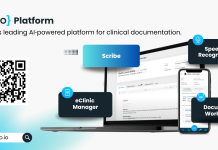Chris Merricks from CX Consultants stresses the importance of choosing the right tools for public sector CX digital transformation
The public sector exists to serve, whether it’s organising bin collections or repairing potholes, and organisations should do their best to provide the highest quality service. More and more public sector organisations are embracing the digital revolution and moving their services online so citizens can self-help. But how do you know what are the right tools for the right job? How do you move telephone interactions to automated?
Naturally, where possible, the aim is to allow the citizen to self-serve, whilst minimising cost. If you have the wrong tools, an agent will have to intervene and that costs money. By investing in your CX – both technology and people – your organisation can reap numerous rewards, ranging from boosting your reputation to increasing efficiency by minimising complaints, duplicate work, and system blockages.
Public sector digital transformation
The most recent UK Citizen Satisfaction Index survey showed that speed, ease, and quality of service are the most crucial aspects when citizens approach organisations for help. The importance of positive citizen experience via online interactions has become more obvious than ever over the past 18 months, during which face to face and even phone interactions have plummeted.
According to Capita, before 2020, UK councils were dealing with an average of 600 million interactions per year, of which around 400 million were online. The remaining 200 million were face to face or on the phone, potentially costing between £2.50 and £8.50 per interaction. The pandemic served to shift most citizens online in their search for help, and this trend is likely to continue. This could potentially save councils a lot of money, but only if they invest properly in online systems and support.
So, we know moving online is important. But where do you start? And what tools and strategies are available to public sector organisations to improve citizen experience?
One of the first steps is to identify what citizens need and want. You simply can’t offer online self-serve if you don’t know what they need help with. Accurately understanding the contact reasons and the process to complete, along with gathering feedback from you, the citizen will give you a well-rounded view of why they are contacting and how they found the interaction.
As well as using the information from the interaction with the citizen directly, you can examine your current processes internally to identify not only pain points, but also which processes can be automated and citizens can self-serve. How long are citizens waiting for a solution to their issue? How long should they be waiting? Is it a fairly easy issue to sort? If it is and you can write some guidance for it, then these are the processes to move online.
So how do you gather all of this useful information? A correctly set up a CRM system with robust reports and analytics is one way. These are systems that allow you to easily collect relevant citizen experience information from a range of sources – such as online chats, reviews, citizen history and contact patterns – and collate it in a single location that anyone, who needs to, can access.
Most of the systems have built-in or app extensions, for knowledge base functions. These can be used to create articles to direct citizens on how to self- serve. These can be surfaced on websites and be quickly and easily updated, depending on outside influences.
CRM systems on the market
There are several CRM systems available on the market. You might have heard of a few of the most popular, such as Oracle, Salesforce, ZenDesk. They all have different benefits and drawbacks, so it’s worth doing your research to find the one that suits you. A few key points to pay attention to are adaptability, so you can more easily modify the system to suit your organisation, and scalability, to ensure the system can grow with you.
Although CRM systems automate a lot of the process, you still require a dedicated team to ensure they are properly managed and fit in with your existing CX processes. Investing in a CX system is one thing: actually utilising it is another. For many organisations, there is a hole between the contact centre operation and the technical teams. Having the ability to explain what is needed to someone who has not worked in that arena is something that can be lacking.
Just like you’d hire a website developer or designer, you can hand off your CX responsibilities to the experts. Not only does this save you time and effort, but it also means you can utilise the expertise and industry know-how of professionals to maximise the returns you get.
CX Consultants: Citizen experience
At CX Consultants, we have in-depth experience in multiple areas of citizen experience, ranging from call centre management to CRM system installation and development. We pride ourselves on taking the stress out of CX for our clients, whether that’s by identifying what it is the citizen needs, creating a CRM that works for you, or even liaising between your operations, citizen service and technical departments to ‘translate’ what is needed into actionable developments, keeping things running smoothly.
Of course, you might already know how important CX is, but you just don’t have the time or internal resources to spare. This is where employing the services of an experienced and knowledgeable CX consultancy can work wonders.
CX is crucial, but it can be difficult to know where to start and where to go. There are some fantastic tools available, but if you want to optimise the experience of your citizens and reap the rewards, all while minimising the extra load on your time and resources, trust the experts to help.
Please note: This is a commercial profile
© 2019. This work is licensed under CC-BY-NC-ND.











